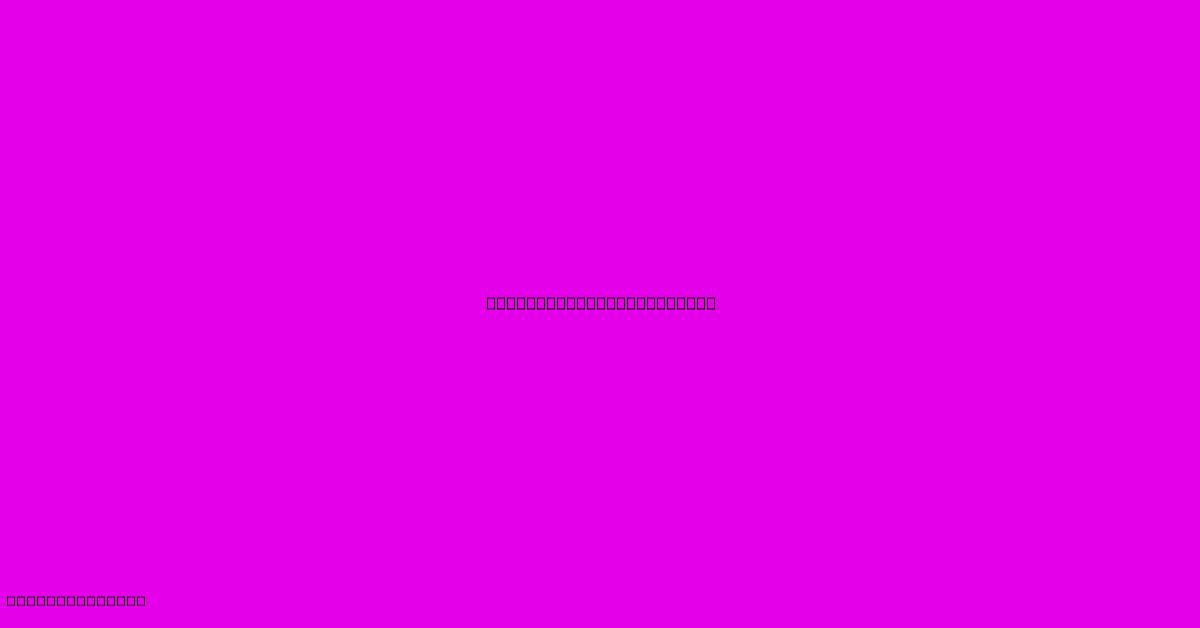Vmek Sorting Technology

Discover more detailed and exciting information on our website. Click the link below to start your adventure: Visit Best Website mr.cleine.com. Don't miss out!
Table of Contents
VMEK Sorting Technology: Revolutionizing Material Separation
VMEK sorting technology represents a significant advancement in the field of material separation, offering high-speed, high-accuracy solutions for a wide range of industries. This article delves into the key aspects of VMEK technology, exploring its underlying principles, applications, and the advantages it offers over traditional sorting methods.
What is VMEK Sorting Technology?
VMEK, often used in conjunction with terms like "sensor-based sorting" or "AI-powered sorting," leverages advanced sensor technologies and sophisticated algorithms to identify and separate materials based on their physical and chemical properties. Unlike older methods relying primarily on size and density, VMEK systems can differentiate materials with subtle variations in color, shape, composition, and even internal structure. This capability is crucial in applications requiring precise material purity.
How Does VMEK Sorting Work?
The core of VMEK sorting involves a multi-stage process:
-
Material Feed: The material to be sorted is fed onto a conveyor belt or other transport system.
-
Sensor Detection: A range of sensors, including high-resolution cameras, near-infrared (NIR) spectrometers, and sometimes even X-ray detectors, analyze each individual item as it passes. These sensors capture detailed data on the material's properties.
-
Data Processing: Sophisticated algorithms, often incorporating machine learning (ML) and artificial intelligence (AI), process the sensor data in real-time. These algorithms are trained to recognize specific material characteristics, enabling accurate classification.
-
Sorting Action: Based on the classification, pneumatic or mechanical actuators precisely eject the identified materials into designated collection points. This sorting action is typically very fast, allowing for high throughput.
-
Quality Control: Many VMEK systems include integrated quality control mechanisms, ensuring the accuracy and efficiency of the sorting process. This might involve feedback loops to adjust the algorithms or manual review of problematic items.
Advantages of VMEK Sorting Over Traditional Methods
VMEK sorting offers several key advantages compared to traditional methods such as sieving, screening, or manual sorting:
-
Higher Accuracy: VMEK systems can differentiate materials with far greater precision, leading to improved product purity and reduced waste.
-
Increased Throughput: Automated sorting significantly increases processing speed compared to manual labor, leading to higher efficiency and lower operational costs.
-
Improved Material Recovery: By accurately identifying valuable materials that might be lost in traditional methods, VMEK maximizes resource utilization and reduces environmental impact.
-
Reduced Labor Costs: Automation reduces the need for manual labor, lowering operational expenses and freeing up human resources for other tasks.
-
Versatility: VMEK systems can be adapted to handle a wide range of materials, from recyclable plastics and metals to agricultural products and minerals.
Applications of VMEK Sorting Technology
VMEK sorting technology finds applications across numerous industries, including:
-
Recycling: Separating plastics, metals, and other recyclable materials for efficient processing.
-
Waste Management: Identifying and removing contaminants from waste streams.
-
Agriculture: Sorting fruits, vegetables, and grains based on quality, size, and ripeness.
-
Mining: Separating valuable minerals from waste rock.
-
Food Processing: Sorting food products based on size, color, and quality.
The Future of VMEK Sorting
Ongoing advancements in sensor technology, AI, and machine learning are continuously improving the capabilities of VMEK sorting systems. We can expect to see even higher accuracy, faster processing speeds, and greater versatility in the future. The integration of robotics and automation will further enhance efficiency and reduce operational costs. The development of more sustainable and energy-efficient systems is also a key area of focus. VMEK sorting technology is poised to play an increasingly important role in optimizing resource utilization and minimizing waste across a variety of industries.

Thank you for visiting our website wich cover about Vmek Sorting Technology. We hope the information provided has been useful to you. Feel free to contact us if you have any questions or need further assistance. See you next time and dont miss to bookmark.
Featured Posts
-
Burlington County Institute Of Technology
Dec 29, 2024
-
Parma Trionfa 2 1 Sul Monza In Serie A
Dec 29, 2024
-
Capitals Ovechkin Back In Lineup
Dec 29, 2024
-
K Technologies
Dec 29, 2024
-
Skor Akhir Lazio Atalanta 1 1
Dec 29, 2024
